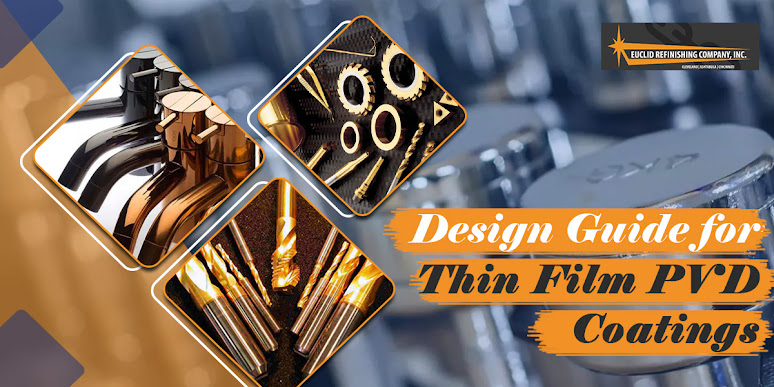Choosing Between Different Solid Dry Film Lubricants: What to Consider
Selecting the right solid dry film lubricant for your application can be a critical decision in ensuring the longevity and efficiency of your machinery or equipment. With a variety of options available, understanding the key factors and benefits of each type is essential. This article will guide you through the important considerations when choosing solid dry film lubricants, the advantages they offer, and why you should consider solid dry film lubricant services from a reputable provider like Euclid Refinishing.
What Are Solid Dry Film Lubricants?
Solid dry film lubricants are materials applied to surfaces to reduce friction and wear without the need for liquid oils or greases. These lubricants form a thin, solid layer on the substrate, providing long-lasting protection and lubrication under extreme conditions.
Types of Solid Dry Film Lubricants
Molybdenum Disulfide (MoS2):
Known for its high load-bearing capabilities.
Performs well in high-pressure environments.
Offers excellent corrosion resistance.
Graphite:
Effective at high temperatures.
Provides good electrical conductivity.
Often used in aerospace and automotive applications.
PTFE (Polytetrafluoroethylene):
Known for its low coefficient of friction.
Chemically inert and non-reactive.
Suitable for a wide range of temperatures and environments.
Boron Nitride:
Excellent thermal conductivity.
Electrically insulating.
Ideal for applications requiring high thermal management.
Key Considerations When Choosing a Solid Dry Film Lubricant
Load-Bearing Capacity
One of the first factors to consider is the load-bearing capacity of the lubricant. For applications involving high loads, Molybdenum Disulfide is often the best choice due to its ability to withstand significant pressure without breaking down.
Temperature Range
The operating temperature is another critical factor. Graphite and PTFE are excellent for high-temperature environments, while Boron Nitride is preferred when thermal management is crucial.
Corrosion Resistance
If the application involves exposure to corrosive environments, choosing a lubricant with high corrosion resistance like Molybdenum Disulfide can protect the substrate from damage and extend the life of the equipment.
Electrical Conductivity
For applications requiring electrical conductivity, Graphite is the ideal choice. In contrast, if electrical insulation is needed, Boron Nitride is more suitable.
Chemical Compatibility
Ensuring the lubricant is chemically compatible with the substrate and environment is vital. PTFE is particularly notable for its chemical inertness, making it suitable for diverse applications.
Benefits of Using Solid Dry Film Lubricants
Reduced Friction and Wear: These lubricants significantly decrease friction, reducing wear and tear on components and extending their operational life.
High-Temperature Performance: Many solid dry film lubricants maintain their lubricating properties at extreme temperatures where liquid lubricants would fail.
Corrosion Protection: They provide a protective barrier against corrosion, crucial for equipment exposed to harsh environments.
Clean and Dry Operation: Unlike liquid lubricants, they do not attract dirt and contaminants, ensuring a cleaner operation.
Extended Maintenance Intervals: With their durable performance, equipment requires less frequent maintenance, reducing downtime and operational costs.
Why Choose Euclid Refinishing for Solid Dry Film Lubricant Services?
When it comes to solid dry film lubricant services, Euclid Refinishing stands out for several reasons:
Expertise and Experience: With years of experience in the industry, our team possesses the knowledge to recommend and apply the best lubricant for your needs.
High-Quality Products: We use only top-grade materials to ensure optimal performance and longevity.
Customized Solutions: Our services are tailored to meet the specific requirements of each client, ensuring the best possible outcome.
State-of-the-Art Facilities: Equipped with the latest technology, we can handle projects of all sizes and complexities.
Commitment to Customer Satisfaction: We prioritize our clients' needs and strive to exceed their expectations in every project.
Conclusion
Choosing the right solid dry film lubricant involves understanding the specific requirements of your application, including load-bearing capacity, temperature range, corrosion resistance, electrical conductivity, and chemical compatibility. Each type of lubricant, whether Molybdenum Disulfide, Graphite, PTFE, or Boron Nitride, offers unique advantages that can enhance the performance and lifespan of your equipment.
For reliable and professional solid dry film lubricant services, trust Euclid Refinishing to provide tailored solutions that meet your needs. Visit euclidrefinishing.com to learn more and get started on enhancing your equipment's performance today.


Comments
Post a Comment